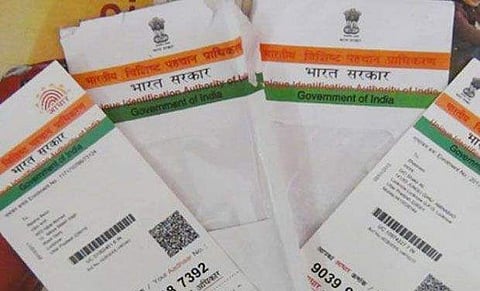

The Centre has confirmed that no child should be denied admission to school for not having an Aadhaar card, reiterating previous announcements to this effect in 2018 and 2021. This comes amid reports of some schools still insisting on Aadhaar for admissions.
Replying to a query in the Lok Sabha, Education Minister Dharmendra Pradhan said, "Education is in the Concurrent List of the Constitution and majority of the schools come under the purview of the respective State and UT Governments. As per the circular dated 05.09.2018 issued by Unique Identification Authority of India, children may not be deprived/denied of their due benefits or rights for want of Aadhaar. No child should be denied admission and other facilities for lack of Aadhaar."
He added, "The Department of School Education and Literacy has also issued a notification dated 29.11.2021 stating that no eligible child shall be denied benefit under the Centrally Sponsored Scheme of Samagra Shiksha in case of failure to establish his identity by undergoing authentication or furnishing proof of possession of Aadhaar number or in the case of a child to whom no Aadhaar number has been assigned, producing an application for enrolment, the benefit shall be given to him by verifying his identity on the basis of other documents."
Several reports have highlighted how children, especially those from marginalised communities, were deprived of their basic right to education as states had made Aadhaar mandatory for admission in government schools. Enrolling for Aadhaar requires birth certificates and address proof which many children belonging to vulnerable sections of society do not have.
In September 2018, the Supreme Court had said that no child could be denied benefits of any scheme for not having an Aadhaar number. "CBSE, NEET, UGC cannot make Aadhaar mandatory, also it is not compulsory for school admissions," it said.
Free education is to be provided to children between six and fourteen years of age under the Right to Education (RTE) Act, 2009.
The Aadhaar norm has prevented the implementation of the RTE Act as well as violated the top court's mandate.
In 2022, media reports said that food provision under the Mid-Day Meal Scheme (school meal programme) was going to be linked with Aadhaar enrolment in Maharashtra. Reports quoted government data that close to 1.9 million students in the state did not have Aadhaar cards and that 5.9 million children were facing issues with their Aadhaar cards such as details not matching those on the school records.
The provision of free lunches on working days at schools is an important factor in the enrollment of children, especially in remote, tribal-dominated areas.
Activists have said that Aadhaar registration in rural areas had several hurdles as people are not technologically advanced to use Aadhaar-based processes.
Several states including Karnataka and the Telugu states have made their direct benefit transfer schemes Aadhaar-enabled including the RTE entitlements to students. Money is now directly transferred to the account number which is linked with the Aadhaar number.
Last year, the Uttar Pradesh government had declared that Rs 1,100 will be transferred to the bank accounts of students' parents to purchase school uniforms including sweaters, shoes, socks, and school bags. But by linking the scheme with compulsory Aadhaar enrolment, lakhs of UP schoolchildren did not receive funds (on account of Aadhaar cards not being made or being processed) and hence did not have adequate warm clothing to protect them in winter, a report in Newsclick said.
Inability to produce the Aadhaar ID card has even led to deaths due to hospitals denying treatment.
About 135.2 crore Aadhaar numbers have been generated as of November 2022 while 71.1 crore Aadhaar numbers have been updated, according to the Economic Survey 2022-23.
In an August 11, 2022 circular, the Unique Identification Authority of India (UIDAI) had made it mandatory to have an Aadhaar number or its enrolment slip for availing government subsidies and benefits.